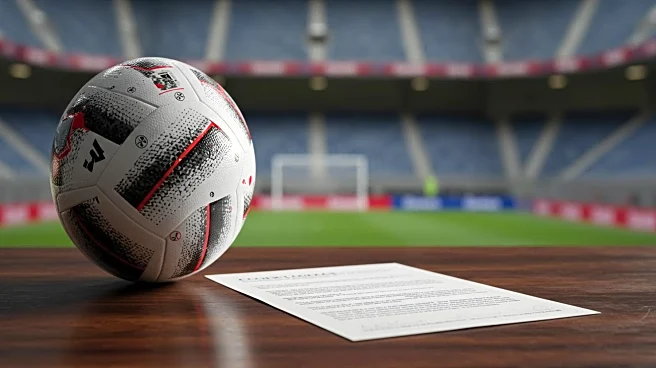What's Happening?
Alexander Isak, Newcastle's forward, is leveraging FIFA's Article 17 to potentially force a transfer after Newcastle rejected a £110 million bid from Liverpool. Article 17 allows players to unilaterally breach contracts under certain conditions, potentially making Isak a free agent within 12 months. This rule, revised after the Lassana Diarra judgment, shifts the burden of proof to clubs and removes several restrictive conditions, making it more player-friendly.
Why It's Important?
The use of Article 17 in Isak's case highlights the evolving dynamics of player transfers and contract negotiations in football. It underscores the increasing power players have in dictating their career moves, potentially reducing clubs' control over transfer fees. This development could lead to more frequent use of Article 17, impacting club strategies and financial planning. The situation also reflects broader trends in sports law and player rights.
What's Next?
Newcastle faces a decision: transfer Isak before the window closes or negotiate a new contract with a release clause. The club may appeal any compensation ruling to the Court of Arbitration for Sport. The outcome could influence future transfer negotiations and the use of Article 17 by other players. Stakeholders will watch closely as the situation unfolds, potentially prompting legal and regulatory discussions.








